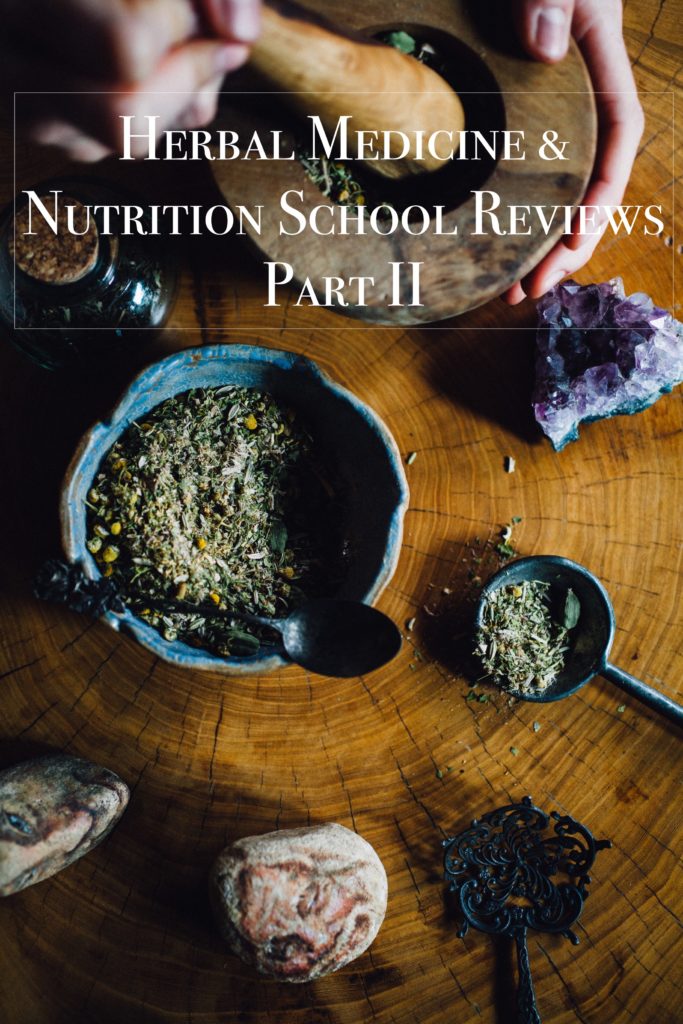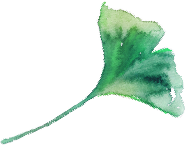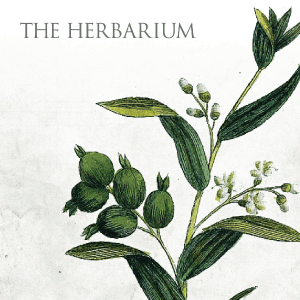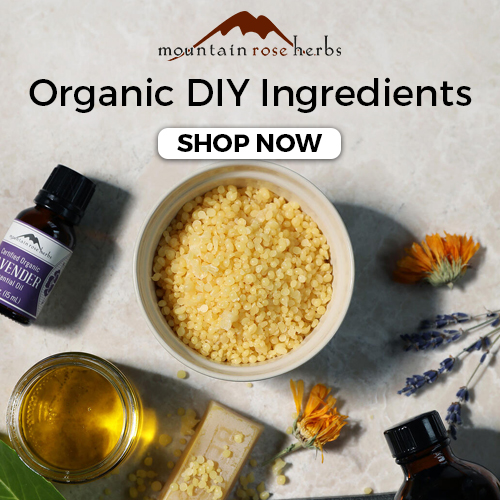
As a follow up to my last post on Herbal Medicine & Nutrition Schools: Reviews from Students, Teachers and Founders, I interviewed a few more students from various herb and nutrition programs throughout the US to add to this series. I think the most popular topic in my inbox is people asking me about where to study, how to start, what programs I would recommend for specific job focus (both nutrition and herbalism), and overall career trajectory guidance (which I offer here!). I’ve gone through a few professional/accredited/non-accredited herbal and nutrition programs and courses myself, and am always happy to share my experience, but I love hearing from other folks who have gone through herb and nutrition programs to hear about their experiences! I think it’s always helpful to get lots of student perspectives before choosing a program, so I hope this little series of interviews is helpful for those just starting out and trying to find an educational program that’s a cozy fit for them!
Read More: My Herbal & Nutrition Education Path| From Botanicals Dreams to Clinical Practice

MUIH Masters in Herbal Medicine Program (Laurel, MD / online) Interview with Arielle Harris
Name and course title of your program?
My program was the Masters of Science in Therapeutic Herbalism with an area of concentration in Clinical at MUIH.
What made you choose to enroll in the MUIH program over other herbal programs?
I chose to go to MUIH because it had a an accredited Master’s program, which at the time I was looking for. I wanted to learn through complete immersion since previously I hadn’t seen the beauty of plants. I also needed a way to pay for it and MUIH takes financial aid, which was very helpful for me. In the end, it was a great choice for me.
What do you feel made your experience in this program truly unique?
I think one of the best things about this program is that you can fit it into your schedule. That isn’t to say it’s easy, because there was a lot of dense material, lots of important things to remember. The online format was really helpful. Convenience aside, one of my favorite parts of the program was the orientation retreat. After all this time, you get to connect with some of the other students in your program and create a bonding experience in just a weekend. The uniqueness of this program was definitely that this program has all the professional learning of a masters program, but the nurturing and healing feel of traditional folk learning method.
How are you utilizing your experience gained in this program in your professional career, or personally, today?
I have started a business called A Tribe of 3 Sisters Wellness and [nourished] just about everyone in my family. I have also started doing webinars on African American herbalism. The clinical aspect of this program really helped me learn how to use multiple platforms to provide [support] to everyone. One of my passions was providing [help] to underrepresented populations…and this program gave me the tools to be able to provide that.
Who would you recommend this program to, and who would you steer away from this program?
I would recommend this program to someone who wants a degree or someone who is interested in a more scholarly aspect of herbalism and plant medicine. Someone with a more traditional need may want a program where they apprentice with someone. While it’s possible to volunteer at the dispensary (an amazing experience), it wouldn’t be what they would be looking for. I wouldn’t recommend someone like that to this program.
In your opinion, what are the highlights of the program here? Favorite classes, teachers, projects, opportunities?
Highlights
- Bevin Clare, who is folky and smart. She was very helpful in this program and it was great to learn from her.
- The field botany for the herbalist was a fun class that really made you appreciate the plants around you.
- The herbal therapeutics classes and foundations class really help you to connect with each herb, by tasting and observing the actual effects you feel while connecting with the plant. The understanding of energetics is very helpful.
- Working in the Herbal dispensary was one of my favorite parts of the program. Being able to make remedies for people all day, putting your healing energy into all the remedies you make. SO FUN.
- Orientation retreat was amazing for me personally because I met so many other great herbalists. Realizing how we were different and how much we had in common. Realizing we had all been called to the same duty. Great experience.
- All the herb classes were great, I loved that they sent us the herbs we were to work within those classes. It just made it easier to get to know the plant. After the program was over I didn’t realize how much I knew about each herb and how ingrained it was in me.
What were some of the downsides or disappointments of the program, if any?
The clinical part of the program was really difficult. Though I learned a lot and it made me a better herbalist, I think, it was difficult getting your own clients. You needed the hours but most of the people I knew didn’t even know what herbalism was or was afraid it wasn’t real. I think this was the only thing I found was the downside.
How long was the program, and when did you complete the program?
The clinical side of this program was 3 years, you could probably finish it earlier if you wanted. I finished fully in 2018 and started in 2015.
Is there an online option for this program?
Yup
What is the official end result of this program (degree / certificate / title etc).
Masters of Science (MS degree) is the end result.
Herbal Academy Entrepreneurial Path Course (Herbal Academy of New England, online) Interview with Kayla Spencer
Name and course title of your program?
In January of 2019, I graduated from the full Entrepreneurial Path package from the Herbal Academy. This path included 3 courses: Introductory Herbalism, Intermediate Herbalism, and Entrepreneurial Herbalism.
What made you choose to enroll in the Herbal Academy program over other herbal programs?
The Herbal Academy of New England keeps herbalism modern, and it shows through their aesthetic. Unlike most schools that I was researching, and trying to decipher what I wanted out of my herbalism journey, the Herbal Academy’s website clearly laid out what each course offered and it was easier for me to understand what I would be getting out of it, whereas others felt burry and I couldn’t understand where I would end up. Their website is so clean to navigate, and that was important for me. Additionally, their teachers and staff are so incredibly helpful with any questions that you have even before you are enrolled.
What do you feel made your experience in this program truly unique?
Through the Entrepreneurial Path, I felt that I was getting the most out of my first experience through Herbalism. I went in knowing what I wanted, and that was to have a business mindset through this schooling, and not a personal keepsake endeavor (although, it still is), so choosing this path allowed me to learn so much about building a true business, and to think, talk, teach and walk like a true Herbalist.
How are you utilizing your experience gained in this program in your professional career, or personally, today?
I am utilizing my knowledge for Herbalism through online and local teachings. I found out through taking the Entrepruaial Course that I am not wanting to go down the route of making or selling a product, and I wish to be a clinical practitioner. I find that to be a blessing because now I am working towards taking their Clinical studies so I can work on that end goal for myself. I would rather work with people, and not sell to people. However, who knows what the future holds and at least I have this information!
Who would you recommend this program to, and who would you steer away from this program?
I would recommend the Entrepreneurial Path to any aspiring Herbalist who wants to start a business either selling or making a product, knows very little about herbalism and wants to grow on it extensively, and for those who are looking to understand the human body. I would not recommend the Entrepreneurial Path course to those who are not wanting to make or sell a product for a living because the Entrepreneurial section is very much so focused on guidelines for that side of an herbal business, and not for an independent herbalist, or an aspiring practitioner.
In your opinion, what are the highlights of the program here? Favorite classes, teachers, projects, opportunities?
The best part of the courses is when you run into writing prompts, recipes, and the quizzes. It’s so much more than just reading about Herbalism, it’s extremely hands-on for it being an online course, and that was the best part. Your education was being tested throughout, and it kept it challenging.
What were some of the downsides or disappointments of the program, if any?
I wish that once you completed any course, your certificate was mailed to you, and you were not forced to only print it out. I wish there was a more personal feel to the ending of it all, and the certificate was on a nice piece of paper. I crave that reward in the end, so to say.
How long was the program, and when did you complete the program?
I started the path in the Autumn of 2017 and completed in the Winter of 2019. Because the path course includes 3 different courses, you are able to start each course whenever you want because it is self-paced and online. The Herbal Academy states that the programs were roughly around 300 hours altogether, but it personally took me around 450 hours. Again, self-paced!
Is there an online option for this program?
All of the Herbal Academy’s courses are online only!
What is the official end result of this program (degree/certificate/ title etc)?
For each course completed within the Entrepreneurial Path (three courses), I received 3 different certificates for my level of training achieved.
Anything else you’d like to add??
If you are looking to understand Herbalism in any shape or fashion, The Herbal Academy is the school to enroll in. It doesn’t matter if you are just wanting to do one beginners course for personal use, or if you want to thoroughly expand and build a business and take every single course they offer. The Herbal Academy is accessible to everyone at any level, and there is something for any and all types of Herbalists.
Masters of Nutrition, Logan University (online) Interview with Heather Tobey
Name and course title of your program?
Master of Science in Nutrition and Human Performance, Logan University
What made you choose to enroll in this online program over other programs?
I chose to enroll in Logan’s nutrition program because it was affordable, flexible, extensive in content, and accredited by the Board of Certification of Nutrition Specialists. Being an accredited program, I am eligible upon graduation to take the Certified Nutrition Specialist (CNS) exam and work toward the 1,000 hours of experience you need to officially gain the title of a CNS. The CNS is the gold standard for advance nutrition professionals. The course listing on Logan’s website drew me in, as well, seeing that the scope of content was vast and exciting and up to date with new research and topics such as genetics and nutrition.
What do you feel made your experience in this program truly unique?
This may be true of other programs, but what I appreciated most of Logan’s program was that I could tailor assignments to align with my interests. I utilized this aspect by writing on subjects such as using Ginkgo biloba as an alternative approach to treating children with ADHD, the effect of herbal and non-herbal supplementation in supporting eating disorder patients with comorbid mood disorders, and hormonal imbalances contributing to hypothalamic amenorrhea in weight-restored recovered anorexic patients.
How are you utilizing your experience gained in this program in your professional career, or personally, today?
I am able to utilize my experience every day! I use the knowledge I’ve gained not only about general nutritional needs and the needs of those presenting with specific disease states, but also knowledge on nutritional and herbal supplements and how and when to use them. I feel well equipped to practice nutrition as a professional because of the resources I have collected throughout the course of the program. I have a started a stellar library because of grad school. I also enjoy the fact that I can utilize my gained knowledge on myself and my family and friends! They are wonderful to take my word on nutrition related topics and give different suggestions a try. I was able to begin implementing ideas and concepts I learned the same day I learned them because we all have to eat and we all have specific nutrition/dietary needs.
What are your career goals upon completion?
I would like to work with recovered eating disorder patients (anorexia nervosa, bulimia, binge eating disorder, and EDNOS). Often times after eating disorder patients have either restored or stabilized their weight they will have hormonal imbalances that effect their menstrual cycle (usually leading to hypothalamic amenorrhea) or they will experience gut dysbiosis (IBS or SIBO). This is such a specific niche that I will be opening my own practice, seeing both local patients in Richmond, VA, and utilizing technology to allow for virtual services. I am so excited to launch this business in late summer/early fall of THIS YEAR! Stay tuned if you are interested in this topic!
Who would you recommend this program to, and who would you steer away from this program?
I would recommend this program to individuals who are interested in working with public health sectors, community health promotion/education, alternative medicine clinics, athletes, and those who desire to start their own nutrition business. If you already have you BS in Dietetics, this program could help round out your previously gained knowledge by giving perspective outside of FDA regulations and help you get more comfortable with the idea of suggesting supplements. If you do not have a BS in Dietetics and would like to work in a hospital setting or as a Registered Dietitian, I would highly recommend you steer clear of this program (and any Master’s program) and consider earning your BS in Dietetics and going through the process of a Dietetic Internship. Unfortunately, those with a Master of Science in Nutrition who do not have their BS in Dietetics are not eligible to become RDs at this time.
In your opinion, what are the highlights of the program here? Favorite classes, teachers, projects, opportunities?
There are so many! As far as highlights of the program, I loved that I got to choose from such a wide range of courses to take. For example, Logan offers courses on Nutrigenetics, Detoxification, Epidemiology, Gastrointest/Urology, Endocrinology, Gut Microbiome, Pain and Inflammation, Survey of Sustainable Food Systems, and Media, Technology, & Public Health. My favorite classes were Detoxification, Gut Microbiome, Nutrigenetics, and the Capstone course.
Another highlight of Logan’s MSN program is that the professors are extremely accessible. I wish this was something I realized sooner than I did! Most professors are willing to have one-on-one phone calls to answer questions and are quick to respond to emails.
The Capstone course project has by far been my favorite project. I appreciate being given an entire semester to research and study one topic of choice. I’m currently researching hypothalamic amenorrhea in recovered eating disorder patients. It’s fascinating and super relevant to my future work!
What were some of the downsides or disappointments of the program, if any?
I would say that the most difficult thing about online school is that you definitely feel the lack of comradery with your cohort. Every conversation you have on the topics you are learning is through the weekly discussion boards that are required in each course. I found that there were certain topics I really wanted to discuss further and more candidly than you can in a discussion board format. If you are an auditory learner, you will may find the learning style difficult as most classes do not have a ton of auditory/video teaching aspects. Some do, such as PowerPoints with audio or links to YouTube videos, but they are only supplementary to the reading content each week. ***Online school is reading and writing heavy!
How long was the program, and when will you complete the program?
Logan’s master program is 36-39 credits, depending on your track. You can go full time or part time and switch it up when you have more or less time to give. I have, on average taken two courses each trimester (three is full-time) and will have completed the program in two and a half years this April.
Is there an online option for this program?
This program is offered both at the brick-and-mortar in Chesterfield, Missouri, as well as online.
What is the official end result of this program (degree / certificate / title etc).
Master of Science in Nutrition (MSN)
Anything else you’d like to add??
Above all else, in choosing the school you attend, it ultimately comes down to what your goals are and how you best learn. If you want to work with clients on-on-one, I would suggest looking into a program that is accredited so that you can become a CNS candidate much easier and quicker.
You guys, grad school is so rewarding! I literally wouldn’t trade my experience at Logan for anything. I feel so grateful and fortunate to have had the opportunity to learn real, science-based nutrition with a holistic mindset to go forth into the world and give back to communities and people groups who need the most nutritional support. Though I am elated that I am nearly finished and will soon begin to practice, I will surely miss the environment of structured learning that Logan University has provided me with over the past two and a half years.
If you’ve completed (or are near completion) of a nutrition or herbal medicine school or course and would like to be interviewed for follow-up posts on this topic, shoot me an email at lindsay@gingertonicbotanicals.com and we’ll be in touch!









